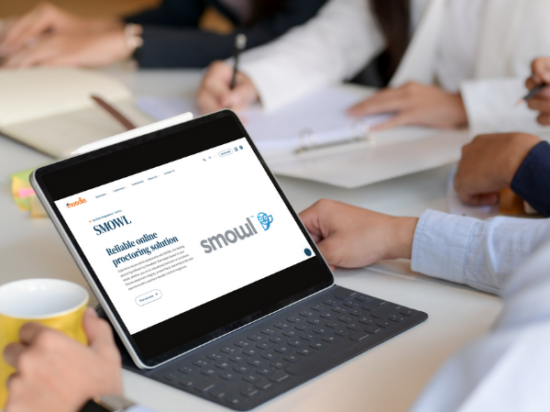Contributed by — Dr. Laurie Korte, MUA Committee Member
The Moodle Users Association is a not-for-profit organization that gives Moodle users a united voice and contributes towards the enhancement of our open-source LMS Moodle.
In every new Moodle release, there’s a feature chosen and funded by MUA members incorporated into the core of Moodle. This means that through the MUA all Moodle users have endless online opportunities to support, develop, propose, and encourage ideas growing into the future of Moodle for all.
Today we chat to inspirational MUA member Ed Beck about some of the best projects that the MUA has proposed and funded and how you can nominate new ideas.
Laurie: Hello, Ed! Thank you for talking to us today. As a seasoned MUA member, in your words, what impact can you have in the Moodle Community?
Ed: The MUA is a strong voice to ask the developers of Moodle for new features that are relevant to Moodle users, whether it is teachers, administrators or students. We provide a platform for our members to advocate for improvements directly with the developers who work on Moodle.
Laurie: Both educators and learners would want to know, what are some of the MUA projects you think have improved the Moodle experience the most?
Ed: In terms of user experience, my favorite MUA projects would be:
- Moodle 3.3: Gemma Lesterhuis proposed a project to create the Moodle Dashboard. This gave students a modern interface where they could see their courses, what was coming due soon, and other important notifications. I love this project because it changed everyone’s user experience with Moodle.
- Moodle 3.8: My big contribution to Moodle through the MUA was the forum project. In online learning, forums are one of the most frequently used options. This gigantic project modernized the forums’ layouts, allowed grading with rubrics, and a bunch of other features. To me, the two most important features were taking care of were accessibility -to ensure all users have equal access to the platform- and the grading for instructors. It was a feature that those who teach with Moodle had been requesting for a really long time.
- Future Project: My next big project that I want the MUA to fund is improvements to instructor grading workflows. The idea is to create a place in Moodle where instructors and teachers can see all the assignments that are waiting to be graded or need their input, so that teachers can easily see what needs to be done. If you like this project, join the MUA and vote for it!
Laurie: Those are three great projects! Where does the inspiration for new ideas for Moodle come from?
Ed: The best proposals to the MUA come from your own experiences with Moodle. I can envision Gemma Lesterhuis working with a student on a tech support call, and the student saying, “I wish there was one place in Moodle where I could see what was coming due next, without having to look through every single course I’m taking.” The Dashboard project fills that gap. For the forums project, I know I had talked to many frustrated teachers that couldn’t see all of one student’s contributions on one page, and be able to read through them and assign a grade or use a rubric. The forums project solved that issue.
When you see a gap in the way that Moodle works that affects everyone, open a ticket in the Moodle tracker. If that tracker ticket gets moved into the backlog, bring attention to it through the MUA. “Don’t boo, vote.”
Laurie: So, for those interested in sharing their ideas, how does the MUA voting system work?
Ed: The Moodle Users Association is an open organization, so individuals and organizations can both join the MUA. As an individual, my annual membership is 100 AUD, which means I have 100 voting points. Our gold members contribute 10,000 AUD, and they have 10,000 voting points – so when we vote, those votes are scaled by the contributions that the organization or individual has made.
This makes the MUA both a wide-open forum for new ideas, but also means that those who commit the most resources towards the open community have a larger say in what the association will fund (as they should!).
Laurie: What about proposing ideas? Can anyone submit a project proposal for consideration?
Ed: It’s actually pretty amazing the number of projects selected that have come from individual members of the MUA and not just from the big organizations. However, if you submit a project you also have to campaign for it. I can feel a lot of pride that I wrote up and submitted the forums project, but four “Gold Member Institutions” supported my proposal including UCLA, California State University, Moodle Users Association of Japan, and Xi’an Jiatong-Liverpool University, plus so many more Silver, Bronze, and individual members. Without the support of other MUA members, my project never would have been funded. That means being an active member in the community, attending MUA meetings and being active on the discussion boards.
Join us on this Growing Moodle adventure and contribute to improving how education is delivered worldwide! Become a member of the MUA on our sign-up page. For more information, drop us a line at info@moodleassocation.org



